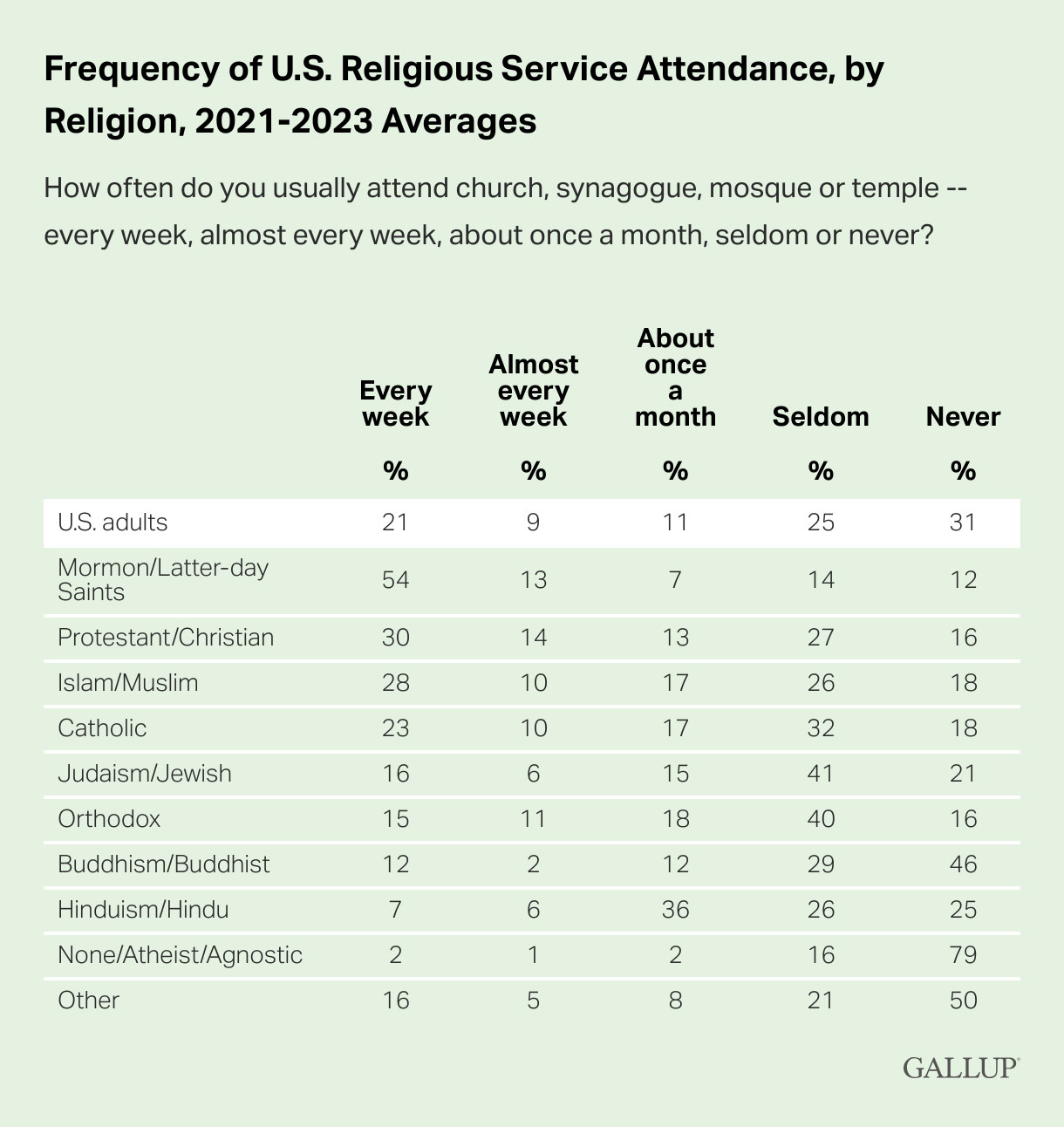(RNS) — The most popular church in America might be St. Mattress, followed by Bedside Baptist.
Those two — euphemisms for sleeping in on Sundays — increasingly describe the attitude of many Americans toward attending churches or other houses of worship.
More than half of Americans (56%) say they seldom or never attend religious services, according to new data from Gallup. Less than a third (30%) say they attend on a weekly or almost weekly basis.
Gallup found that almost all of the so-called Nones (95%) say they seldom or never attend services. More than half of Jews, Buddhists, Hindus and Orthodox Christians say they rarely attend as well.
Among religious Americans, Latter-Day Saints (67%) are most likely to say they attend weekly or almost weekly, followed by Protestants (44%), Muslims (38%) and Catholics (33%).
Overall, the percentage of Americans who never attend services has more than doubled since the early 1990s, while the share of those who say they rarely attend has stayed stable, according to Gallup data.
An earlier report from Gallup found that in 1992, those who attended weekly (34%) outnumbered those who never attended (14%) by 2 to 1. Since 2018, the number of Americans who never attend services has outnumbered the number who attend weekly.

Results from a Gallup poll about the average frequency of attendance to different religious services in the United States over the last three years. Chart by Gallup
Gallup Senior Editor Jeffrey Jones said the decline in attendance is driven mostly by generational shifts. Not only are younger Americans less likely to identify with any religion, they are also less likely to have been raised with a religion.
“If you were raised in a religion and you have fallen away, you can come back to it,” he said. “Younger people, a lot of times, weren’t brought up in any religion. So they don’t have anything to come back down.”
Americans today are also less religious overall and less likely to identify as Christian, meaning that the nation’s largest religious tradition — whose adherents are most likely to attend weekly services — has declined, leading to lower attendance.
Jones said that an overall loss of faith in the nation’s institutions likely plays a role in the declining attendance. A Gallup poll last year found that only a third of Americans had a great deal or quite a lot of confidence in the church or organized religion. But the growth of the “nones” — those who do not identify with any religion — has likely played a larger role in the attendance decline, said Jones.
Gallup’s findings echo the data from other major organizations, such as Pew Research Center, that track religion and other cultural trends and have found both religious identity and participation are declining.
A recent Pew study found that most Americans believe religion’s influence is waning. Half think that is a bad thing. The other half think the decline is good or don’t care.